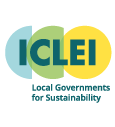Circular development
 Local governments are at the frontline of the pressing waste and resource challenges triggered by the linear economy. This includes resources being extracted to create products and infrastructure characterized by single use and inefficiency, leading to environmental degradation, pollution and increasing emissions within local jurisdictions.
Local governments are at the frontline of the pressing waste and resource challenges triggered by the linear economy. This includes resources being extracted to create products and infrastructure characterized by single use and inefficiency, leading to environmental degradation, pollution and increasing emissions within local jurisdictions.
Circular development offers a pathway to address these challenges in a just and sustainable way. Adopting and implementing circularity enables local governments to foster sustainable communities that use recyclable, sharable and regenerative resources, while continuing to meet the material and development needs of a growing urban population. With approximately half of global emissions stemming from our consumption patterns, transitioning to a circular economy is key to reach local strategic goals such as climate neutrality, and it provides opportunities for improving resilience, protecting biodiversity and supporting local economic development by encouraging closed-loop urban systems and local innovation.
ICLEI supports local governments on each step of their circular development journey, whether they are just getting started with circularity or are well-advanced in their transition, by providing guidance, knowledge products and peer exchanges through the growing global community of cities committed to the circular transition, ICLEI Circulars, and a wide array of circular development projects across different world regions.






